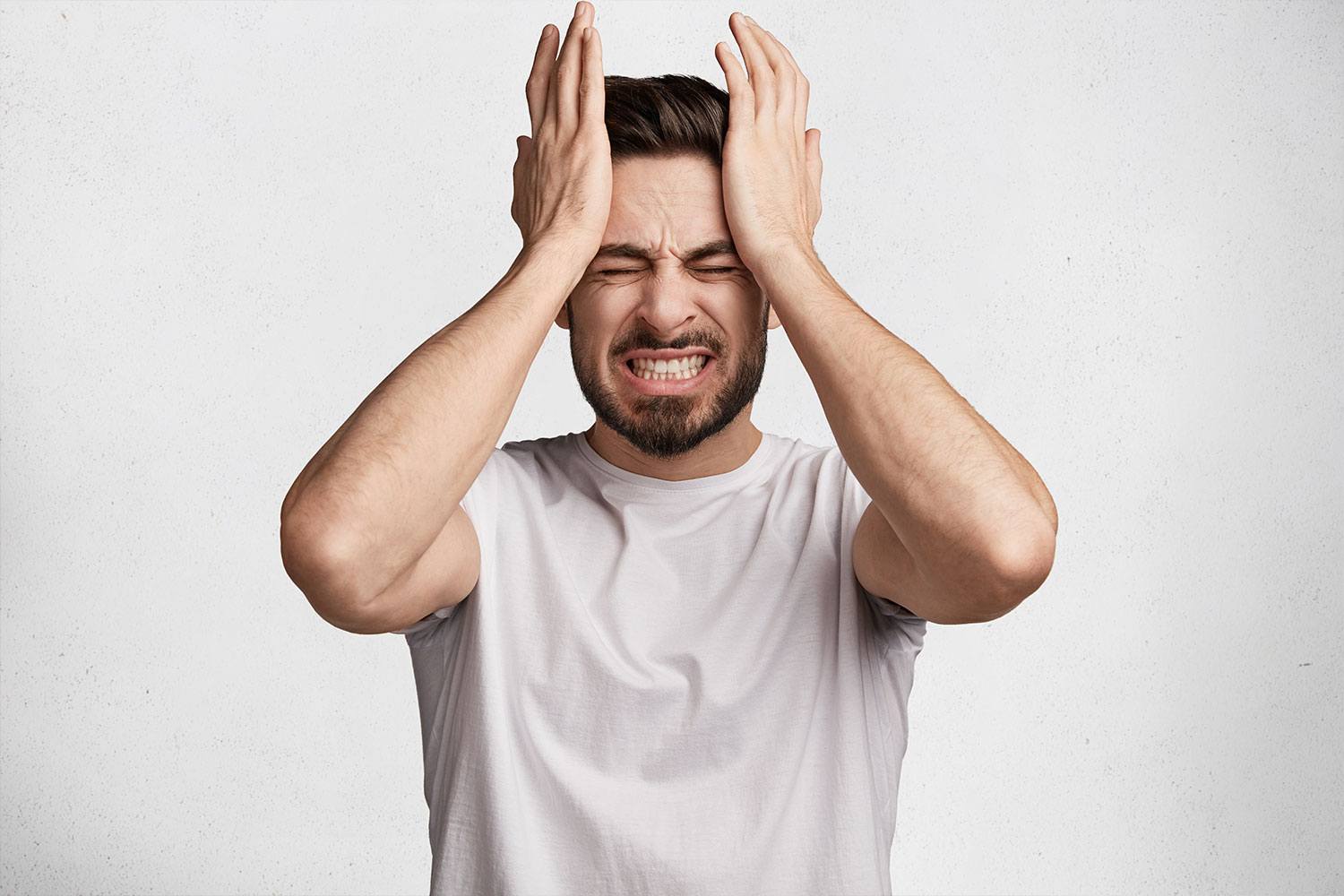
Why do people get sore teeth from clenching, and why is clenching your teeth a sign of anxiety?
Dental health advice often focuses on the dangers of grinding teeth because the damage of the habit is a lot more pronounced and obvious and because it happens while we’re asleep so we have less control of it. But did you know that clenching your teeth can be just as bad, and can cause dental issues too?
Our teeth, gums and jaws may be strong enough to allow us to bite into and chew food, but they aren’t made of steel and certain habits will degrade them further. Clenching the jaw is a habit that exerts an extreme force on our jaws, and can lead to slowly weakening our jaw muscles, putting a strain on them and leading to dental and jaw dysfunction.
Jaw Clenching vs. Teeth Grinding
Many people use grinding teeth and clenching teeth interchangeably, but they are slightly different. Grinding is moving the jaw while the teeth are closed together. Clenching is tightening your jaw muscles while your mouth is closed, on the other hand.
Teeth grinding often happens when you’re fast asleep while clenching usually happens when you’re awake and going through your day. It’s a seemingly harmless habit that if done continuously can weaken the structures of the jaw.
When you clench your teeth, you exert a lot of pressure on your jaw and teeth, which leads to microfractures which can ultimately result in larger cracks, chips or break. For instance, if you have a bad habit of clenching your teeth, your teeth are already weakened. Now imagine if you bit into something too hard? You are more likely to suffer damage.
What Causes Clenching?
Many people clench their teeth because of almost second-nature stress and anxiety coping mechanism or even a reaction that happens when we feel angry or frustrated. It’s a nervous tick many of us have, but it’s something we should be working to weed out of our behaviour because its effects on our teeth can be huge.
Certain medications can cause jaw clenching. For example, a side effect of some ADHD medications when the dosage is too high leads to jaw tightness which can lead to grinding and chewing teeth to alleviate that tightness.
How to Stop Daytime Teeth Clenching
The first way to reduce your jaw clenching habit is to work on managing your stress and anxiety in healthier ways. Measures like meditation and reduction of your caffeine intake help tremendously, but if it persists, consider therapy to help you learn better methods for coping with stress.
The second thing you can do is train yourself to stop the clenching habit. Become aware of it by counting how often you notice yourself doing it, and consider wearing a transparent mouth guard to help you slowly start changing this behaviour.
Consider a treatment that helps to relax your jaw muscles. Your doctor might prescribe a muscle-relaxing medication, but this certainly isn’t a long-term fix. You can also drink calming teas to also help, and try relaxation exercises that impact your jaw.
By cutting out your jaw clenching habit, you protect your teeth and preserve your dental health. If you want to talk to a team of dental professionals who can help you manage your dental health more effectively, get in touch with us today.